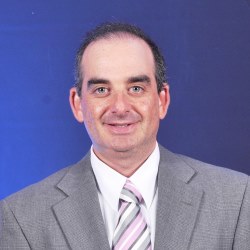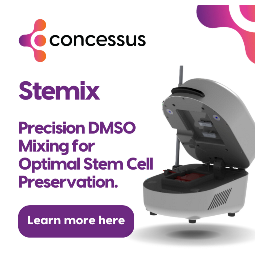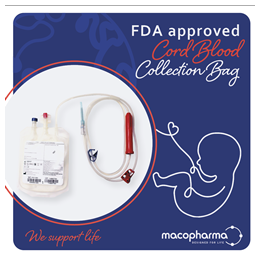Jste zde
Regenerative Medicine Clinics in Mexico
 The Federal office responsible for all health regulations in Mexico is COFEPRIS (Comisión Federal para la Protección contra Riesgos Sanitarios). COFEPRIS will publish the laws that the health section of the government authorizes, they give the licenses and permit to operate any kind of facility related to human consumption (food, drugs, medical services, etc.), and they are also in charge for the enforcement of such regulations. COFEPRIS is the Mexico equivalent to the FDA in the USA.
The Federal office responsible for all health regulations in Mexico is COFEPRIS (Comisión Federal para la Protección contra Riesgos Sanitarios). COFEPRIS will publish the laws that the health section of the government authorizes, they give the licenses and permit to operate any kind of facility related to human consumption (food, drugs, medical services, etc.), and they are also in charge for the enforcement of such regulations. COFEPRIS is the Mexico equivalent to the FDA in the USA.
There are several different licenses that can be obtained from COFEPRIS for different kinds of activities. A hospital has a different license than a medical office, and a drugstore has a different license than an imaging laboratory. Having the proper license is very important because it will dictate for which activities the facility is approved. Patients have the right to see the license of a place to make sure it is regulated. By law, the license has to be displayed to the public at the entrance of the facility.
Getting a COFEPRIS license is not easy, it usually takes months. The Mexican regulators will ask for the proper documentation to assure the public that the clinic with a license is safe and complies with regulations on the facility, the equipment, the procedures, and the training of the medical doctor.
In order to practice stem cell therapy in Mexico, the medical facility should have several different kinds of licenses:
Stem Cell Collection License: This license gives the ability to collect stem cells from a source. The most common sources of cells are bone marrow, adipose (fat) tissue, and umbilical cord. This license is a must whenever a patient gets his own stem cells (autologous procedures).
Surgery room License: This license gives the facility permission to practice outpatient surgery. This license is necessary to practice any kind of invasive or minimal invasive procedures on a patient. Both this license and the stem cell collection license (above) are required when a patient is treated with their own bone marrow or adipose tissue.
Stem Cell Bank: This license allows the facility to process and cryopreserve cells. This kind of license is necessary for laboratories that receive tissue to isolate stem cells and culture cells, among other activities. A laboratory that separates cells from umbilical cord tissue should have this license.
Regenerative Medicine License: This license gives the clinic the possibility to treat patients with stem cells, ozone therapy, PRP, hyperbaric chambers, and other kinds of therapy. Medical offices without a regenerative medicine license cannot infuse stem cells because COFEPRIS has not verified those offices have the proper equipment, proper medical education, and most important: the means to treat any complication.
 A license from COFEPRIS is specific to a facility with a specific address under a specific name. Usually, COFEPRIS will visit the facility after license submission to verify initial compliance, and later COFEPRIS will visit to verify acceptable keeping records, current documentation, regulation compliance, facilities and equipment well maintained. If, after a visit, the authority determines observations that can be corrected, they will give 15 days to do so. If the authority finds the medical practice is putting the public in danger, they will give the clinic a penalty that could go from a fine up to closing the facility to avoid any risk to any patient.
A license from COFEPRIS is specific to a facility with a specific address under a specific name. Usually, COFEPRIS will visit the facility after license submission to verify initial compliance, and later COFEPRIS will visit to verify acceptable keeping records, current documentation, regulation compliance, facilities and equipment well maintained. If, after a visit, the authority determines observations that can be corrected, they will give 15 days to do so. If the authority finds the medical practice is putting the public in danger, they will give the clinic a penalty that could go from a fine up to closing the facility to avoid any risk to any patient.
VERY IMPORTANT NOTE: Since getting the proper license and maintaining it is not easy, you could find medical offices operating without a license, or showing a cell bank license while they need another kind of license. BE AWARE of matching the address and the name of the license to the name and address of the clinic; if they don’t match you can be sure that clinic does not comply with the regulations.
COFEPRIS general information is online here: https://www.gob.mx/cofepris. The documents for each type of license are listed on the COFEPRIS website, but unfortunately these lists are not kept up to date. Nonetheless, patients can check if their clinic is listed. A COFEPRIS license has the following structure: 14 TR 02 004 0008. The first 2 digits represent the year of issuance.
- Click here to see Surgery Room Licenses: https://www.gob.mx/cms/uploads/attachment/file/390713/SEASS_AM.pdf
- Click here to see Regenerative Medicine Licenses: https://www.gob.mx/cms/uploads/attachment/file/411722/SEASS_REGEN.pdf
- Click here to see Licenses for Banks of organs, tissues or cells: https://www.gob.mx/cms/uploads/attachment/file/322872/SEASS_TRASP.pdf
Is very common for patients to be confused on where to go for treatment. There are many options over the internet, and is hard to select the right one for the right case. The following are some factors to consider when selecting a clinic to get treatment. As always, follow your common sense because there are people out there taking advantage of sick desperate patients. If something seems odd, it probably is.
 Website. A good website with enough information is always a good sign of educated people behind it. Webpages with a great look but without information means that the company behind it can be hiding the reality of the clinic or they are only a patient magnet. BE AWARE: Make sure is clearly stated: where is the clinic and who is the medical team. If they hide this information, there is a good reason to do so.
Website. A good website with enough information is always a good sign of educated people behind it. Webpages with a great look but without information means that the company behind it can be hiding the reality of the clinic or they are only a patient magnet. BE AWARE: Make sure is clearly stated: where is the clinic and who is the medical team. If they hide this information, there is a good reason to do so.
Experience: The more cases a clinic has treated, the more accumulated knowledge and as a plus, more hands-on ability. Of course, education helps a lot with knowledge, but in medicine experience is key to treat tough cases, complicated combination of conditions, and so on. Also look into longevity in the marketplace. Longer presence in the market, means clinic stability with recurring patients and referrals, regulatory compliance, staff team stability, follow ups for patients, etc. BE AWARE of conglomerates that add up number of patients treated at different clinics and/or different doctors as one. If they do not share their knowledge between their doctors, there is not accumulated knowledge just accumulated numbers.
Doctor: When you pick the right clinic, there is no need to pick the doctor between the medical team. A clinic has usually a multidisciplinary team, where they take care of patients by matching condition with specialist. If you are picking an individual doctor, take your time to evaluate his education, his credentials. He should have an education related to your condition or to regenerative medicine. In Mexico every doctor gets a University Diploma called “titulo” and then they get a practice credential called “cedula”. It is illegal to practice medicine without both of these documents. It is also common for doctors in this field to attend stem cell conferences to keep up with such fast paced research. BE AWARE: Avoid doctors that call themselves experts on everything, treat all and every medical condition, and promise to cure to all.
 Testimonials: Having references from other patients treated at the clinic is important. Watch many other’s testimonials, even if they do not have your condition. Is important to get the feel on the overall service you will get. Keep an eye not only on the results obtained, but what they say about their trip, medical team, follow up, and other things you consider important. BE AWARE of testimonials that are “too good to be true”. There are videos of actors portrayed as patients talking about how stem cells “cure” them, or “miracles” related to their case. Try to see beyond the person speaking to make sure is a real testimonial and not an act.
Testimonials: Having references from other patients treated at the clinic is important. Watch many other’s testimonials, even if they do not have your condition. Is important to get the feel on the overall service you will get. Keep an eye not only on the results obtained, but what they say about their trip, medical team, follow up, and other things you consider important. BE AWARE of testimonials that are “too good to be true”. There are videos of actors portrayed as patients talking about how stem cells “cure” them, or “miracles” related to their case. Try to see beyond the person speaking to make sure is a real testimonial and not an act.
Evaluation: It is amazing what a doctor can see on medical records before even meeting the patient. Once a paper and physical evaluation is made, a realistic expectation can be set and patient can be informed the reach of stem cell therapy to his/her specific case. Having an evaluation previous to a medical procedure is really important, to determine the plan of care and the expectation. Without an evaluation it is very difficult to quote any program accurately. Every patient is different, there is no one-size fits all. (Unless you are healthy and you are getting a generic wellness program.) BE AWARE of nurses giving IV infusions without proper supervision, just acting as if they are following a cooking recipe. And also, be aware of clinics quoting prices without studying your case, and even worse asking for a deposit before making an evaluation. This is a red flag, it tells you that the clinic is interested first in your money and then in your health, instead of the other way around.
 Expectation: Sales people (and sometimes doctors) tend to exaggerate the results of stem cell therapy in patients. Also, they are good at telling what you want to hear. When talking to a clinic, make sure to have clear what can you expect from cell therapy. Usually, a degenerative disease takes years to move the patient to his current state, it is illogic to believe that you are going to get cured 24 hours after an IV of any kind. Stem cells are a very good tool to regenerate damage tissue, but it takes time, and usually repetition. One stem cell procedure will show improvement, full potential could take more than one procedure. BE AWARE of any clinic telling you are going to get cured right away with only one stem cell infusion. Do not make decisions driven by a miracle promise.
Expectation: Sales people (and sometimes doctors) tend to exaggerate the results of stem cell therapy in patients. Also, they are good at telling what you want to hear. When talking to a clinic, make sure to have clear what can you expect from cell therapy. Usually, a degenerative disease takes years to move the patient to his current state, it is illogic to believe that you are going to get cured 24 hours after an IV of any kind. Stem cells are a very good tool to regenerate damage tissue, but it takes time, and usually repetition. One stem cell procedure will show improvement, full potential could take more than one procedure. BE AWARE of any clinic telling you are going to get cured right away with only one stem cell infusion. Do not make decisions driven by a miracle promise.
Availability: It is a very good idea to have a phone call with the doctor of the clinic. It helps the doctor to evaluate your case better, and it helps you to understand the procedures and expectations. BE AWARE of a clinic that cannot connect you with the doctor prior to treatment, that means that if you have a problem, you won’t have access to the doctor later.
Follow up: As we mentioned above, patients are unique. Patients need to be evaluated, treated and then follow up with. The follow up stage is very important to keep records of the actual benefits of treatment and helps the patient getting answers to questions that arise during the following weeks. Complications are not common, but if any, can be taken care of, or even better prevented. BE AWARE of clinics without follow up, where after a procedure they do not answer the phone anymore and complications are sent to your local healthcare unit.
 Complications: Stem cell therapy has two main risks: infection and rejection. Introducing an infection to a patient, could happen in two different ways: A) during specimen manipulation in the lab, or during cultures, B) during practicing the actual procedure by using non-sterile materials, non-sterile techniques, non-sterile rooms (usually regular offices or even patient home). A licensed clinic working with a licensed laboratory will have control of these factors, therefore, have lower (close to none) risk. That is why stem cell procedures performed by professionals are very safe for patients.
Complications: Stem cell therapy has two main risks: infection and rejection. Introducing an infection to a patient, could happen in two different ways: A) during specimen manipulation in the lab, or during cultures, B) during practicing the actual procedure by using non-sterile materials, non-sterile techniques, non-sterile rooms (usually regular offices or even patient home). A licensed clinic working with a licensed laboratory will have control of these factors, therefore, have lower (close to none) risk. That is why stem cell procedures performed by professionals are very safe for patients.
Rejection happens when the cells infused are not compatible with your body. As soon as the foreign substance gets into the body, an allergic reaction is triggered. Patients will start feeling one or more of the following: a change of temperature, breathing difficulty, skin itching, inflammation, body pain, etc. In other words, complications start to snowball, and they grow big really fast. To avoid or diminish risk of rejection, stem cells should be obtained from a trusted source, and they should be processed in a high-quality lab.
The laboratory is important because some cell types require a step of multiplication (cell expansion in culture) to grow enough numbers of cells for a treatment. Viability is often an issue because many cells get damaged or die during the isolation process, cryopreservation process, and thawing process. It is important to acquire these cells from a high-quality laboratory. Getting an infusion of a very large number of cells with low viability will result in close to none benefits and the body will have to dispose of all those dead cells. When patients reject cells or get dead cells they feel sick with cold-like symptoms. To be safe, it is recommended to stay away from: Stem cells from animals, Stem Cells from plants, Embryonic stem cells.
No clinic is complete, without having the proper professionals and equipment to treat a medical complication. Things can happen, sometimes not related to the procedure being offered. Even though complications do not happen often, is really important to have all these tools handy to avoid any catastrophe. BE AWARE of the source of the cells, the actual procedure room and the preparedness to treat complications.
Taking the decision to have treatment abroad is not easy. One of the big components beside choosing wisely, is being afraid of making a mistake - a huge mistake when talking about health and expenses above average. To avoid making a mistake, pay attention to red flags and as mentioned above, follow your instinct.
Red flags to avoid:
- - Do not make any money transfer before an evaluation by the care provider.
- - Do not choose a clinic without knowing where is the clinic exactly and who is the treating medical team.
- - Do not make any decision until you get all your questions answered and you have a clear vision of what treatment you are going into.
- - Run away from clinics that promise you a cure.
- - Avoid extra money charges by asking the total price you are paying. (Some places will up-sell services once you get to the clinic, and you could feel trapped with extra expenses.)
- - Ask about what type of cells they use and where they get them.
- - Ask about how they handle follow up of your case.
- - Ask about how they handle complications. Even though they are rare, no clinic can say complications do not exist.
- - Ask for their Licenses from COFEPRIS and match name and address with the place doing the actual treatments.
 Take home key points:
Take home key points:
- - Select your medical provider by his knowledge and not by the stem cell number.
- - Stem cell quality is more important than cell quantity. Focus in high viability and good quality of the cells.
- - Check licensing. If buying cells from a lab, make sure they have a Cell Bank license. The medical provider should have a Regenerative Medicine license to treat patients. Each entity needs their own license. (Obviously, It is illegal to use someone else’s license.)
- - If buying cells from a lab, make sure the stem cells travel cryogenically frozen and not refrigerated only. Viability drops significantly by the hour, when not frozen.


